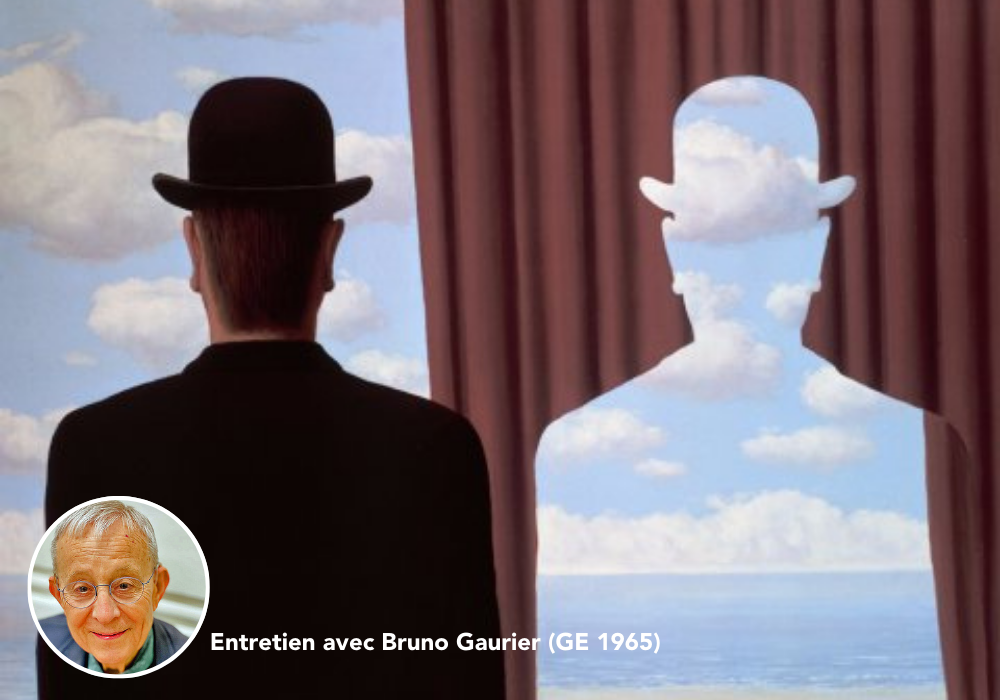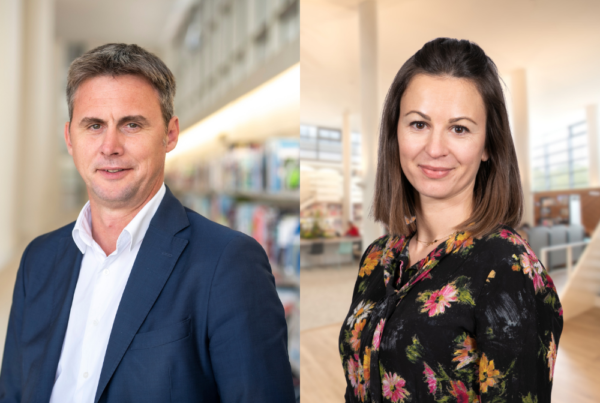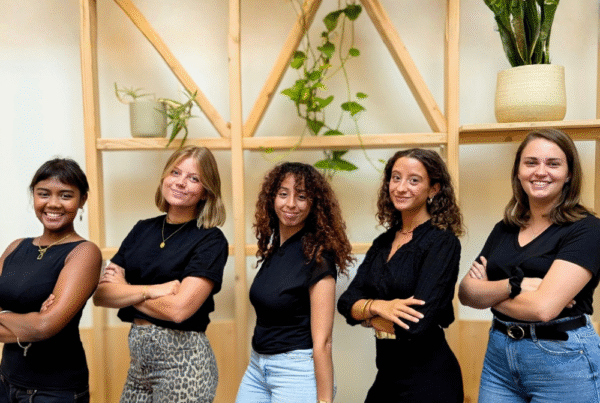
A graduate of the Grande École programme at Audencia, Bruno Gaurier (GE 1965) has devoted his life to the inclusion of people with disabilities. After completing his studies, he joined the Association des Paralysés de France (now APF France handicap), initially as a volunteer, before being entrusted with positions of responsibility such as the holiday stays department, communications and international relations, where he was both founder and director. An economist, writer and translator, he is also an expert for the European Commission and the authorities, notably in the field of air transport for people with reduced mobility. As part of the European Disability Forum, he took part in drafting the United Nations Convention on the Rights of Persons with Disabilities. His ongoing commitment and expertise provide us with valuable insights into the support provided to students with disabilities in schools.
In your opinion, what are the main challenges facing young people with disabilities during their school career?
Bruno Gaurier: I would say that the first thing that is absolutely essential today is that every child, whether disabled or not, has a fundamental right to education. By this I mean education in the Anglo-Saxon sense of the term, which includes both psychosocial support and support for learning at school; in other words, support for the child in acquiring knowledge and learning to live socially.
In terms of schooling, there has been a significant change. We have moved from a separation with specialised establishments to an inclusive approach for disabled children in classes open to all. However, this remains a challenge, as many children are still under- or excluded from school because of their disability.
If a child is to acquire maximum opportunities, this early learning is a necessary and inescapable stage. A child who has been at school with other children from the start of his or her life will find it easier to find his or her place in society. Everyone wins. It is wrong to think that these pupils lower the level of a class. Not only do levels not fall when there are children with disabilities in a class, they tend to rise. And there’s a simple reason for this. It develops new learning in the child, and a psychosocial maturity that is much greater than in a class where there is no diversity. Admittedly, this has to be cultivated and it’s not a given, but it can be built.
“Every child, whether disabled or not, has a fundamental right to education.”
What resources and support do you think are essential for disabled students at a business school?
B.G : The first condition is accessibility. This starts with access to accommodation, access to transport, physical access to the school and also to teaching resources. The law of 11 February 2005 – for equal rights and opportunities, participation and citizenship for people with disabilities – laid down accessibility obligations, but these were significantly reduced in 2018 with the Elan law. So accessibility remains a crucial issue. You have many children who have learned to manage on their own with their wheelchair and who, if everything were accessible, could go to school on their own. That’s one of our big pleas.
Every school must be physically accessible. Audencia is a good example. I myself have a hearing aid and I was able to see at Homecoming Day, which brought together alumni, including those from my year, that efforts had been made to improve accessibility and equipment.
Secondly, it is essential to provide personalised support at every stage of the student’s arrival. This starts even before they arrive, when they want to take the entrance exam. We need to check with them beforehand whether they need help with the computer or an extra third of their time for the exams. Basically, you have to ask yourself, what are we going to give them to ensure that they are at the same level as the others? Schools need to assess students’ individual needs to guarantee equal opportunities. Psycho-socially, students need to feel that they are in normal conditions to be able to start working on their entrance exams on an equal footing with everyone else.
Another issue is that of students with disabilities who go abroad as part of their studies. What rights do they have abroad? What remains of their French rights outside our borders? What can be done about care and medical treatments that are not allowed to leave the country, for example? The question of what we call the “transportability of rights” is a concept that we are working on at APF France handicap and that represents a real challenge for equal rights for people with disabilities.
How would you describe the level of disability awareness in France and among young people? Is there enough awareness?
B.G: On that, I’d say yes and no. There’s what we’d call day-to-day awareness. There is what we would call day-to-day awareness and what I would call a more systematic, systemic, natural awareness… And the latter can only reinforce the former. Today, people with disabilities will no longer be singled out in the street, but as a result we are now faced with growing indifference on the public highway, and that’s not a good thing. There’s nothing worse than indifference.
Personally, I’m one of those who would like to see civic education reinstated in all schools, from primary to secondary, to help strengthen social life and citizenship. As a child, I remember that we had two hours a week at school where we talked about other people. We learned to live with each other. For me, this is part of lifelong learning. These so-called ‘civics’ classes were, and still are fresh in my mind, of the greatest interest.
Among young people, awareness is improving thanks to the inclusion of children with disabilities in nursery schools, who naturally accept their classmates. They learn from the start of their lives not to start separating people. The day when, at every stage of life, we have understood this, we will have won everything.
“It is not the person who is disabled, but rather, at least in part, society that creates the disability.”
How can we improve the accessibility and inclusion of disabled students in their academic and professional environment?
B.G : It’s both very simple and very complicated. I would say that the aim is to create an environment where every student can flourish and achieve their full potential, regardless of their disability.
Our principle at APF France handicap is “come as you are”. My disability is not the whole of me, it’s what’s added on top of me. My disability is not my soul, it is not my spirit, it is not what makes me who I am. My disability is something that happens to me, that falls into my lap through an accident, through a defect that manifests itself at birth or is hereditary, for many other reasons… It’s something I didn’t choose. I am myself, and there is this something added to me, which gives a name to my difficulty. The tragedy is when people look at you through your appearance and not simply as who you are.
When I was studying at Audencia, I already had a hearing problem. From time to time, people would say to me, “Why do you always make people repeat themselves like that? I’d often repeat things face-to-face, but that was just part of everyday life, so we didn’t pay too much attention. I didn’t even recognise myself as having a disability at the time. It was just a way of life. Up until a certain age, I was even a musician, a tenor singer and choirmaster. And then one day things got more serious, in a tone of “deprivation”: I was told, “Sir, you have to wear braces. If you don’t wear them now, you’re going to be in trouble later”. And then, boom, I found out I was disabled. I couldn’t hear very well, but I didn’t know I had progressive deafness. And then I discovered the fantastic progress that had been made in the field of hearing aids and in the design of communal areas such as meeting rooms and auditoriums for the hearing impaired. Magnetic loops have become a simple matter to fit out when you include this requirement at the outset of a construction project. It’s just a question of wiring and a radio receiver, and activating the “T socket” (“T” for telephone) on hearing aids. And, as we know, sign language also works wonders for the profoundly deaf.
We are increasingly moving towards a society that is open to all, with universal concepts and where everything is designed to be shared with others, as with the arrival of shared housing, but also new facilities for the city, transport, road development, etc. So it’s important that we don’t leave anyone out.
At APF France Handicap, we have coined a word for an “inclusive” society – in other words, a society that is both inclusive and universal (everywhere and for everyone). I’m a firm believer in a vocabulary like that. In many situations, we realise that it’s not the person who is disabled, but rather, at least in part, society that creates the disability, simply by looking at it. If I’m standing in front of a ‘boat’ at the end of a garage, or in front of a pavement, and I can get up alone in my electric wheelchair, the design will act as if my disability isn’t visible. But in everyday life, in society, outdoors or in my own home, these are the situations that can become disabling, because of the way other people look at me, because of inaccessibility, because of all the circumstances in which it would be enough to anticipate and plan for each person’s needs. By thinking in terms of people with disabilities, we are in fact doing everyone a favour. That’s why it’s so important, so inescapable, to ask ourselves how we can build a society that enables us to learn to live together, everyone with everyone. All we have to do is listen to everyone, get everyone around the table and talk to each other. I repeat, talk to each other.
Let’s not forget that the French Human Rights Ombudsman is always saying that disability is the number one cause of exclusion in our country. And yet there is one simple watchword: “all you had to do was think about it”. And we are discovering that “adapting the environment well” is no more expensive than adapting it any old way without thinking about the user or the user of the services that now have to be open to everyone, “everything to everyone”…



